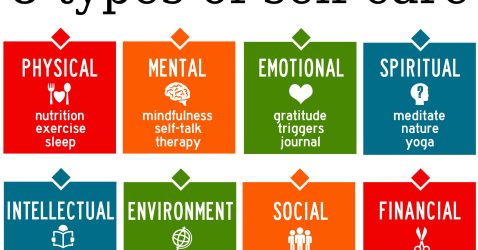Self-care Tips For Individuals Living In Small, Urban Apartments?
Living in a small, urban apartment can often feel like a challenge when it comes to prioritizing self-care. However, with a few simple adjustments and mindful choices, you can transform your living space into a sanctuary that promotes relaxation, rejuvenation, and overall well-being. In this article, we will explore practical self-care tips specifically tailored for individuals navigating the constraints of small urban living. From creating a calming atmosphere to incorporating exercise routines, we will uncover manageable strategies that will help you prioritize self-care and make the most out of your urban apartment lifestyle.
Creating a Relaxing Environment
Declutter and organize your space
Creating a relaxing environment in your small, urban apartment starts with decluttering and organizing your space. Living in a small apartment can easily lead to clutter and disarray, which can contribute to feelings of stress and being overwhelmed. Take the time to assess your belongings and get rid of anything that you no longer need or use. Organize your remaining items in a way that maximizes space and makes it easy to find what you need. By decluttering and organizing, you can create a peaceful and serene living space.
Incorporate soothing elements
Another way to enhance the relaxing ambiance of your small apartment is by incorporating soothing elements into your decor. Choose calming colors such as soft blues, muted greens, or neutral tones for your walls and furnishings. These colors have a calming effect on the mind and can help to create a tranquil atmosphere. Additionally, consider incorporating soft textures, such as plush rugs or cozy blankets, to add comfort and relaxation to your space. Including elements like scented candles, essential oil diffusers, or relaxing music can also contribute to a soothing environment.
Utilize natural light
Natural light can have a significant impact on your mood and overall well-being. In your small, urban apartment, make the most of the natural light available. Keep your windows clear of obstacles, such as heavy curtains or furniture that blocks the light. Opt for lighter window treatments or blinds that can be easily adjusted to let in more or less light as desired. When possible, position your workspace or seating areas near the windows to take advantage of the natural light. Natural light not only brightens up your space but also helps to regulate your sleep-wake cycle and promotes a sense of well-being.
Decorate with plants
Bringing nature indoors by decorating your small apartment with plants is a fantastic way to create a calming atmosphere. Not only do plants add a touch of life and beauty to your space, but they also have a range of health benefits. Plants can purify the air, improve air quality, and increase humidity levels, which can be beneficial in dry urban environments. Choose low-maintenance plants that thrive indoors, such as pothos, snake plants, or peace lilies. Arrange your plants in clusters or use hanging baskets to add visual interest and create a serene oasis in your small apartment.
Maintaining a Healthy Lifestyle
Establish a regular exercise routine
Living in a small, urban apartment may make it seem challenging to prioritize physical activity, but establishing a regular exercise routine is crucial for maintaining a healthy lifestyle. Look for creative ways to stay active within your living space. Consider trying workout videos or apps that offer exercises you can do in a confined area, such as yoga or bodyweight workouts. Set aside dedicated time each day for exercise and make it a non-negotiable part of your routine. By incorporating exercise into your daily life, you can improve your physical health, boost your mood, and reduce stress.
Eat a balanced diet
A healthy lifestyle also involves nourishing your body with a balanced diet. When living in a small urban apartment, it’s important to make the most of your limited kitchen space and resources. Focus on incorporating a variety of fruits, vegetables, whole grains, lean proteins, and healthy fats into your meals. Plan and prepare your meals in advance to avoid relying on takeout or unhealthy snacks. Use storage solutions like glass jars or stackable containers to optimize your pantry and refrigerator space. By prioritizing a balanced diet, you can support your overall well-being and have the energy you need to thrive in your urban lifestyle.
Stay hydrated
Staying hydrated is one of the simplest yet most crucial aspects of maintaining a healthy lifestyle. In your small apartment, have a designated water bottle or glass that you can easily refill throughout the day. Set reminders or use apps to ensure you’re drinking enough water. To add some flavor, infuse your water with slices of fruits or herbs. Additionally, limit your intake of sugary beverages and opt for water as your primary source of hydration. By staying hydrated, you can support your bodily functions, improve cognitive function, and maintain a healthy weight.
Get enough sleep
A good night’s sleep is vital for your physical and mental well-being. When living in a small, urban apartment where noise and distractions may be more prevalent, ensuring a restful sleep environment becomes even more important. Invest in blackout curtains or blinds to block out external light sources, and use white noise machines or earplugs to minimize disturbances. Establish a bedtime routine that includes activities such as reading a book or practicing relaxation techniques to signal to your body that it’s time to wind down. Finally, prioritize your comfort by investing in a high-quality mattress and pillows that support your sleep needs. By getting enough sleep, you can improve your mood, enhance cognitive function, and maintain optimal overall health.
Managing Stress and Mental Health
Practice mindfulness and meditation
Living in a small, urban apartment can sometimes feel hectic and overwhelming. Managing stress and prioritizing your mental health is essential for self-care. Practicing mindfulness and meditation can help you find a sense of calm and clarity amidst the chaos. Set aside a few minutes each day to sit quietly and focus on your breathing. Use guided meditation apps or online resources to assist you in your practice. By incorporating mindfulness and meditation into your routine, you can reduce stress, improve concentration, and cultivate a greater sense of well-being.
Set boundaries and carve out personal time
Living in a small urban apartment often means being in close proximity to others, whether it’s neighbors in adjoining units or roommates. It’s important to set boundaries and carve out personal time for yourself to maintain your mental well-being. Create designated spaces within your apartment where you can relax and unwind without distractions. Communicate your needs with your neighbors or roommates and establish quiet hours or designated periods of personal time. By setting boundaries and prioritizing personal time, you can recharge, reduce stress, and maintain healthy relationships.
Engage in activities you enjoy
Engaging in activities you enjoy is a key component of managing stress and maintaining positive mental health in your small, urban apartment. Whether it’s reading, painting, cooking, or playing a musical instrument, make time for activities that bring you joy and fulfillment. Allocate a specific area of your apartment where you can pursue your hobbies and engage in these activities. Allow yourself to fully immerse in the experience and escape from the demands of daily life. By incorporating enjoyable activities into your routine, you can reduce stress, promote relaxation, and enhance your overall well-being.
Seek social support
Living in a small, urban apartment can sometimes feel isolating. It’s important to seek social support and maintain connections with others to support your mental health. Reach out to friends and loved ones regularly, whether through phone calls, video chats, or in-person meetups. Consider joining online communities or virtual groups that align with your interests or hobbies. Participate in volunteer activities or attend local events and gatherings to interact with like-minded individuals. By actively seeking social support, you can combat feelings of loneliness, foster a sense of belonging, and enhance your overall well-being.
Optimizing Productivity and Focus
Designate a dedicated workspace
When living in a small, urban apartment, it’s crucial to designate a specific area as your workspace. Whether you have a separate room or a designated corner, having a dedicated workspace can help separate work from leisure. Set up a comfortable desk or table, and invest in an ergonomic chair to support proper posture during extended periods of work. Personalize your workspace with items that inspire and motivate you, such as a vision board or artwork. By creating a designated workspace, you can enhance your focus, increase productivity, and maintain a healthy work-life balance.
Eliminate distractions
In a small, urban apartment, distractions can easily hinder your focus and productivity. Take proactive steps to eliminate distractions and create a conducive work environment. Put your phone on silent or in a different room to minimize notifications. Use noise-canceling headphones or play background music to drown out external noise. Communicate your work schedule and boundaries with those you live with to minimize interruptions. By removing distractions, you can improve your concentration, stay on task, and accomplish more in less time.
Follow a structured routine
Adopting a structured routine is key to optimizing productivity and focus in your small, urban apartment. Establish set times for waking up, starting work, taking breaks, and winding down for the day. Stick to these routines as closely as possible to create a sense of structure and consistency. Plan your tasks and prioritize them based on importance and deadlines. Use productivity tools or apps to help you stay organized and manage your time effectively. By following a structured routine, you can improve your time management skills, reduce procrastination, and maintain a clear focus on your goals.
Break tasks into smaller, manageable chunks
When faced with numerous tasks or a complex project, it can be overwhelming. Breaking tasks into smaller, manageable chunks can make them more approachable and less overwhelming. Set clear objectives for each task and create a step-by-step plan to guide your progress. By breaking tasks down, you can increase your sense of accomplishment as you complete each small step. This approach helps to maintain motivation and momentum, ultimately leading to increased productivity and a higher quality of work.
Promoting Physical Well-being
Stretch and move regularly
In a small, urban apartment, finding ways to stay active is crucial for promoting physical well-being. Incorporate stretching and movement into your daily routine, even if you don’t have the space for a full workout. Set aside a few minutes each day for stretching to improve flexibility and relieve muscle tension. Use small exercise equipment like resistance bands or exercise balls to add variety to your movements. Take breaks from sitting by incorporating brief periods of physical activity, such as walking or jogging in place. By incorporating regular movement, you can improve circulation, maintain muscle tone, and support a healthy lifestyle.
Find alternative workout options
Living in a small, urban apartment may limit your access to traditional workout facilities or equipment, but there are numerous alternative workout options to explore. Try online workout classes or fitness apps that offer guided exercises for a variety of fitness levels. Explore bodyweight exercises that can be done with minimal space and equipment requirements. Consider incorporating activities like dancing, yoga, or Pilates, which can be adapted to small spaces. By exploring alternative workout options, you can stay active, build strength, and improve your overall fitness.
Utilize home workout equipment
Investing in home workout equipment can be a valuable addition to your small, urban apartment, enabling you to diversify your exercise routine further. Look for compact and multifunctional equipment that can easily be stored when not in use. Items such as resistance bands, adjustable dumbbells, or compact exercise machines can provide a range of workout options without taking up excessive space. Prioritize equipment that aligns with your fitness goals and preferences. By utilizing home workout equipment, you can enjoy the convenience of exercising in the comfort of your own home, promoting physical well-being.
Prioritize ergonomic setup
When working or exercising in a small, urban apartment, it’s essential to prioritize an ergonomic setup to prevent injuries and promote physical well-being. Ensure your workspace is arranged in a way that supports proper posture, with your computer screen at eye level and your keyboard and mouse at a comfortable height. Invest in an ergonomic chair that provides adequate lumbar support and adjust it to fit your body correctly. When engaging in physical activities, pay attention to your form to avoid strain or injuries. By prioritizing an ergonomic setup, you can reduce the risk of musculoskeletal issues and maintain physical well-being.
Enhancing Sleep Quality
Create a calming sleep environment
Creating a calming sleep environment is essential for enhancing sleep quality in your small, urban apartment. Choose soothing colors for your bedding and decor, such as soft blues or neutrals, to promote relaxation. Use blackout curtains or blinds to block out external light sources that may interfere with your sleep. Keep your bedroom free from clutter and create a clutter-free zone dedicated to sleep and relaxation. Invest in high-quality bedding that is comfortable and suits your sleep preferences. By creating a calming sleep environment, you can signal to your body that it’s time to wind down and promote restful sleep.
Establish a bedtime routine
Establishing a consistent bedtime routine is a powerful way to signal to your body and mind that it’s time to sleep. In your small, urban apartment, establish a series of relaxing activities that you can engage in before bed. This may include things like reading a book, taking a warm bath, practicing relaxation techniques, or listening to calming music. Try to establish a set sleep schedule, going to bed and waking up at the same time each day, even on weekends. By establishing a bedtime routine, you can regulate your internal body clock and improve the quality of your sleep.
Limit screen time before bed
In today’s digital age, it can be tempting to spend hours scrolling through our devices before bed. However, excessive screen time before bed can disrupt your sleep quality. The blue light emitted by screens can interfere with your body’s natural sleep-wake cycle. In your small, urban apartment, establish a screen-free period before bedtime, ideally one to two hours. Use this time to engage in relaxing activities that promote sleep, such as reading a book or meditating. By limiting screen time before bed, you can improve your sleep quality and wake up feeling more refreshed and rejuvenated.
Invest in a comfortable mattress and pillows
The quality of your mattress and pillows can significantly impact your sleep quality. In your small, urban apartment, invest in a comfortable mattress and pillows that adequately support your body and suit your sleep preferences. Take the time to research and try out different options to find the right fit for you. Consider factors such as mattress firmness, pillow height, and materials used. Mattress toppers or mattress pads can also provide additional comfort and support if needed. By investing in a comfortable mattress and pillows, you can optimize your sleep quality and wake up feeling rested and ready for the day.
Maximizing Storage Space
Utilize vertical storage solutions
When living in a small, urban apartment, making the most of your storage space is crucial. Utilizing vertical storage solutions is an effective way to maximize the available space. Install shelves or floating wall-mounted units to store books, decorative items, or personal belongings. Use hooks or hanging organizers to keep often-used items easily accessible without taking up precious floor space. Consider utilizing the area above cabinets or doors for additional storage. By utilizing vertical storage solutions, you can create more functional and organized living spaces in your small apartment.
Invest in multifunctional furniture
Multifunctional furniture is a valuable investment when living in a small, urban apartment. Look for pieces that serve multiple purposes and offer additional storage capabilities. For example, choose a bed frame with built-in drawers or ottomans with hidden storage compartments. Opt for a foldable dining table or desk that can be tucked away when not in use. Utilize storage ottomans or nesting tables that can be easily moved or rearranged as needed. By investing in multifunctional furniture, you can maximize your storage space and make your small apartment more versatile and organized.
Use under-bed storage options
Under-bed storage is an often-underutilized space that can provide valuable storage solutions in a small, urban apartment. Invest in under-bed storage containers or bins that can slide easily in and out. Use vacuum-sealed bags to store out-of-season clothing or bedding, maximizing the available space. Consider using bed risers to create additional clearance under your bed, allowing for larger storage containers. By utilizing under-bed storage options, you can free up closet or floor space and keep your belongings organized and easily accessible.
Organize items by category
When living in a small, urban apartment, keeping your belongings organized is crucial for maximizing storage space. One effective organization method is to group items by category. Instead of scattering your belongings throughout your apartment, designate specific areas or containers for each category. This could involve having a separate container for office supplies, kitchen utensils, or toiletries. Use labels or clear containers to help identify the contents easily. By organizing items by category, you can efficiently store and retrieve your belongings, preventing clutter and optimizing your small living space.
Cultivating Hobbies and Interests
Find activities that can be done indoors
When living in a small, urban apartment, finding activities that can be done indoors is essential for cultivating hobbies and interests. Look for hobbies or interests that can be pursued within the confines of your apartment. This could include activities such as reading, writing, drawing, knitting, or puzzles. Explore online resources or tutorials that can guide you in learning a new skill or hobby from the comfort of your own home. By finding indoor activities that you enjoy, you can cultivate your interests, foster creativity, and find fulfillment within your small apartment.
Explore creative outlets
Living in a small, urban apartment provides an opportunity to explore creative outlets and express yourself artistically. Experiment with different forms of art, such as painting, sculpting, or photography, that can be practiced within a limited space. Look for compact art supplies or consider digital options if space is a concern. Challenge yourself to think outside the box and find unique ways to incorporate creativity into your everyday life. By exploring creative outlets, you can tap into your artistic side, reduce stress, and find joy in self-expression.
Join virtual classes or clubs
Living in a small, urban apartment does not have to limit your opportunities for learning or connecting with others who share similar interests. Many communities, organizations, and universities offer virtual classes or clubs that you can join from anywhere. Look for online courses or workshops in subjects that interest you, such as cooking, photography, or writing. Seek out virtual clubs or communities dedicated to hobbies or activities you enjoy. By joining virtual classes or clubs, you can expand your knowledge, connect with like-minded individuals, and foster a sense of community, all from the comfort of your small apartment.
Discover new hobbies
Living in a small, urban apartment can provide a unique opportunity to discover new hobbies or interests. Use this time to experiment and try out activities that you’ve never considered before. This could involve exploring new genres of literature, learning a musical instrument, or trying your hand at gardening with indoor plants. Be open to new experiences and embrace the opportunity to engage in activities that bring you joy. By discovering new hobbies, you can cultivate personal growth, enhance your well-being, and create a sense of accomplishment within the confines of your small apartment.
Creating a Personal Sanctuary
Designate a relaxation area
In your small, urban apartment, it’s important to create a designated relaxation area where you can retreat and unwind. Choose a corner of your living space or a cozy nook that can be transformed into your personal sanctuary. Arrange comfortable seating, such as a cozy armchair or a bean bag, where you can relax and enjoy some quiet time. Add soft lighting, plush cushions, and throws to create a cozy atmosphere. Personalize the area with items that bring you joy, such as photographs, artwork, or sentimental objects. By creating a designated relaxation area, you can escape the stresses of daily life and recharge in your own personal sanctuary.
Add personal touches to your living space
Adding personal touches to your living space is a wonderful way to create a sense of identity and comfort in your small, urban apartment. Display photographs of loved ones, cherished memories, or artwork that holds special meaning to you. Incorporate items from your travels or souvenirs that evoke positive emotions. Use decorative elements that reflect your personal style and bring you joy. By adding personal touches, you can create a space that feels uniquely yours and fosters a sense of belonging and happiness.
Create a cozy reading nook
A cozy reading nook is a perfect addition to your small, urban apartment, providing a quiet and comfortable space for relaxation and escapism. Choose a corner near a window or a well-lit area where you can enjoy natural light or ambient lighting. Invest in a comfortable chair or create a cozy seating area with pillows and blankets. Install shelves or bring in a small bookcase to store your favorite books within arm’s reach. Personalize the space with decorative elements such as a side table for your beverage or a small lamp for reading at night. By creating a cozy reading nook, you can escape into the world of literature and find solace and relaxation in your small apartment.
Invest in comfortable seating
Living in a small, urban apartment often means that the available seating options are limited. Investing in comfortable seating is crucial to make your space more inviting and relaxing. Look for space-saving furniture options that offer both comfort and functionality. Consider a comfortable sofa or loveseat with built-in storage or a sleeper sofa for guests. Choose cushioned dining chairs or padded bar stools for your dining area. Utilize floor pillows or bean bags for additional seating options. By investing in comfortable seating, you can create a warm and welcoming atmosphere in your small living space and ensure that you and your guests feel relaxed and at ease.
Building a Supportive Community
Connect with neighbors
Living in a small, urban apartment provides an opportunity to connect and build relationships with your neighbors. Take the initiative to introduce yourself and strike up conversations with those who live nearby. Participate in building or community events, such as potlucks or social gatherings. Join any online platforms or groups specific to your apartment complex or neighborhood to keep up with community news and events. By connecting with your neighbors, you can foster a sense of community, make new friends, and create a support network within your urban environment.
Attend local events and gatherings
While living in a small, urban apartment, take advantage of local events and gatherings to engage with your community. Check community calendars, local newspapers, or online platforms for upcoming events in your area. Attend farmer’s markets, art fairs, or festivals to immerse yourself in the local culture and meet new people. Participate in neighborhood clean-up efforts or volunteer for community initiatives. By actively participating in local events and gatherings, you can forge connections, promote a sense of belonging, and contribute to the vibrancy of your urban community.
Join online communities
In addition to connecting with your neighbors, joining online communities is a great way to build a supportive network while living in a small, urban apartment. Look for online platforms or social media groups focused on topics or interests that align with your passions. Participate in discussions, ask questions, and offer support to others in the community. By joining online communities, you can expand your social circle, gain valuable insights, and build meaningful connections with like-minded individuals, irrespective of physical space limitations.
Participate in volunteer activities
Volunteering is a fantastic way to give back to your community and connect with others who share similar values. Look for local volunteer opportunities, whether it’s helping at a food bank, assisting in local charities, or contributing to environmental initiatives. Participating in volunteer activities can provide a sense of purpose, foster a deeper connection with your community, and offer opportunities to meet individuals who share your passion for making a difference. By actively engaging in volunteer activities, you can build a supportive community, make a positive impact, and enhance your own well-being in the process.
By incorporating the tips and strategies discussed in this article, individuals living in small, urban apartments can create a relaxing environment, maintain a healthy lifestyle, manage stress and mental health, optimize productivity and focus, promote physical well-being, enhance sleep quality, maximize storage space, cultivate hobbies and interests, create a personal sanctuary, and build a supportive community. Living in a small space does not have to restrict your ability to prioritize self-care and well-being. Embrace the opportunities presented by your urban lifestyle to create a fulfilling and harmonious living environment. Remember, taking care of yourself is essential, and by investing in your well-being, you can lead a happier and more balanced life in your small, urban apartment.

















